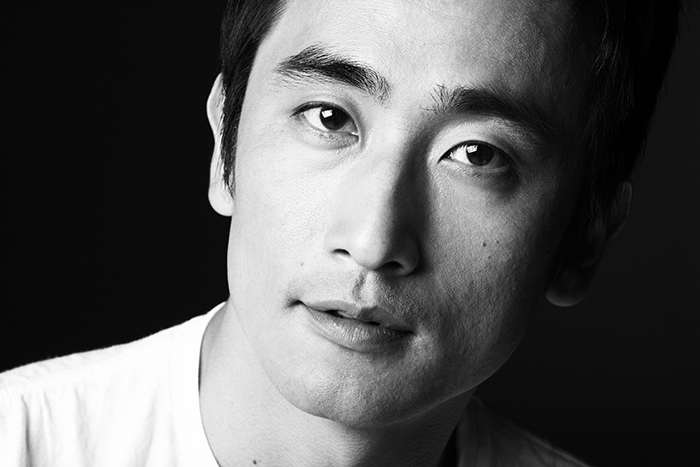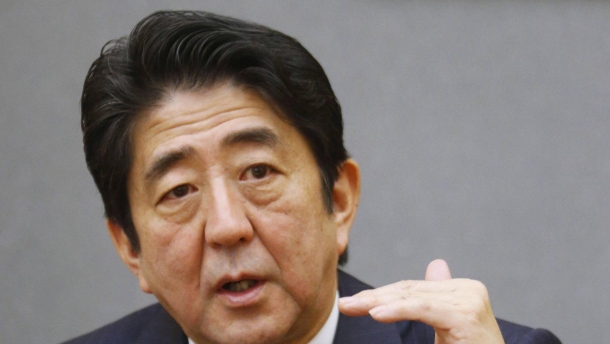by JAMES S. KIM | @james_s_kim
editor@charactermedia.com
Benson Lee knew he needed an experienced actor to portray Mr. Kim, the no-nonsense head counselor of the summer camp in Seoul Searching. The character doesn’t have too much affection for the unruly and disrespectful kids from America, especially Sid (Justin Chon), the punk who takes every opportunity to show up Mr. Kim in class.
What the kids don’t know about Mr. Kim, however, is that he used to be one of the most respected instructors in South Korea before a tragedy involving his son derailed his reputation and tore his family apart. It is a burden that weighs on his mind and heart beneath his gruff exterior.
Veteran South Korean actor Cha In-Pyo fit the bill perfectly, as Lee wanted an actor who could portray the gritty yet broken man with good command of the English language.
 Cha In-Pyo, right, as Mr. Kim in Seoul Searching.
Cha In-Pyo, right, as Mr. Kim in Seoul Searching.
Cha, who studied at Rutgers University in New Jersey some 25 years ago, spoke to KoreAm via email (in English) back in January about his relationships with Korean Americans and how those experiences resonated with him when it came to Seoul Searching. He also delves into his own memories of 1980s South Korea and expresses his excitement at visiting the Sundance Film Festival for the first time.
The interview has been edited for length and clarity.
KoreAm: Where did you first hear about this movie and role? Was there something that attracted you to the project?
Cha In-Pyo: One day in the summer of 2013, Benson Lee contacted me via email, asking me if I would be interested in taking the role of Mr. Kim in Seoul Searching. I read the script first and I was interested, so I decided to meet him in person.
Benson looked like a nice and confident man, and he seemed to know what exactly he had to do to make the project real. However, at that point, the investment for Seoul Searching was not yet available and none of the cast was decided, so I was not sure if Benson would actually be able to accomplish all the necessary steps for pre-production and actually get to shoot the movie.
However, I told him that day that I would like to be the part of his movie. I had some doubt that he would actually come a long way to make it happen, but he came back exactly a year later and said, ”Let’s shoot the movie.”
The script was attractive to me because of two reasons: First, it’s a teen style story, yet it also embraces the parents-sons and daughters relationship. Second, there is no stereotyped villain in this movie. Everyone has a reason to be who they are.
What was your first impression of your character? Are there any aspects that really stuck out to you?
Mr. Kim is a typical Korean father. Being a father of three children myself, including one high schooler, I could understand why Mr. Kim had to be Mr. Kim. Every father hopes and tries to give best things for their children.
But the problem is, fathers don’t actually know what the best thing is for their children. This is where the conflict between father and son/daughter begins, especially in the 1980s. Korea was not as rich as now. So it was natural for the most fathers to think that good education is the only way to ensure children’s bright future.
That’s how education became the best thing for children, and most fathers drove their children like cattle into tough competition to get into a better college. Fathers thought it was love. But, love is not love if the beloved doesn’t feel it’s love.
 From L to R: Actors Cha In-Pyo, Justin Chon, Esteban Ahn and Teo Yoo.
From L to R: Actors Cha In-Pyo, Justin Chon, Esteban Ahn and Teo Yoo.
What was it like working with Benson Lee and being part of the vision he had for Seoul Searching?
I believe good directors need to be able to endure pressures. Benson, as a director and the producer of this project, proved himself to be a man with strong will and endurance.
I believe making a movie is all about making friends. You have to make many good friends who will listen to your direction and accomplish them accordingly. Benson became a good friend to many actors and crew members through Seoul Searching.
Personally, he became a good friend of mine. Benson and I get together once in a while to drink good scotch.
What was it like working with a diverse cast, which also had Koreans from all over the world?
It’s always exciting to work with people from different backgrounds. When you are on the set to shoot the movie, there is no Korean style or American style. There is only one style. That is the director’s style. I think Benson did a good job to break the possible barrier from the cultural diversity.
How do you think the film will be received in Korea?
I honestly have no idea. Hopefully, this film finds a good distributor both in America and Korea. I personally hope that this film will finds audiences among the 10 million Korean diasporic population and consoles their identity.
What were some of the themes in the movie that you connected with the most?
The miscommunications due to the language barrier actually damaged the relationships in everyone’s families in the movie. I felt a sort of compassion towards them, because back in the old days, when I went to college in New Jersey, which was about 25 years ago, I had Korean American friends who had the same problems as the characters have in the movie. Seeing them not being able to communicate with their parents, I remember I felt compassion for my friends.
How does the setting— South Korea during the 1980s—add to the tone and feel of the movie? Are there any particular memories you associate with this time period?
I went to college during the mid-80s in Korea. At that time, Korea was under a military dictatorship, and many college students participated in daily demonstration against government. Some got killed, some got kidnapped and tortured, and everyone was hurt by the military violence. I suggested to Benson that we should include some of the scenes to describe the political situations in Korea at the time, and Benson agreed to do so, but due to the low budget, he couldn’t.
What do you remember about 1980s Korea?
The smell of tear gas, first girlfriend, songs by Lee Moon-sae.
Will you be attending the Sundance Film Festival? If so, what are you most excited about for the experience?
Yes, I am attending, and this is my first visit to Sundance. My wife and I were the MCs for the closing ceremony for the Pusan Film Festival in 2006. Since then, I haven’t been to any film festivals ’til now. So, I am really excited to be at Sundance. What makes it more exciting about Sundance is that you don’t need to wear a tuxedo!
* * *
Here’s what Director Benson Lee had to say about Cha:
Benson Lee: Cha is an actor I’ve always really admired. He was in a movie that blew me away, called The Crossing. It’s about a North Korean father who has to leave North Korea just to get medicine, like penicillin, for his dying wife, and the story evolves into this very tragic story about how his wife dies and all he has left is his son. It was one of the most gut-wrenching performances I’ve seen, and he was so good in it.
 Cha In-Pyo in ‘The Crossing’ (2008)
Cha In-Pyo in ‘The Crossing’ (2008)
I just knew that he was one of the major contenders for the role. But on top of that, his English is also very good, because he studied at Rutgers University in New Jersey. His English is very good, and to be frank, it’s hard to find Korean actors who have that command of the English language, and he was just perfect. He himself is known as a humanitarian in Korea, and he’s involved with lots of humanitarian work and has his own nonprofit. He’s a very benevolent person. We needed that from Mr. Kim, but Cha could also show the grittier side to Mr. Kim too.
His range is amazing, and he actually became a very good friend of mine through this movie, and he was a total pleasure to work with.
* * *
Justin Chon on working with Cha In-Pyo:
Justin Chon: I grew up watching his dramas. My parents would always have dramas on in the house. It was really amazing working with such a Korean icon. He’s been around forever, and he’s an OG. He’s been through it all. The fact that he’s still around means he’s so phenomenal.
Working with him was such an honor, and also so cathartic as well. My parents love that I’m an actor and they’re proud of me, but the fact that I got to work with Cha In-Pyo all of a sudden really legitimized me. It was so awesome, I loved it. It was surreal as well.
People [bring up] the moment I worked with Robert De Niro or Al Pacino, but for me, working with Cha In-Pyo was on another level with the cultural significance.
He always made me feel comfortable and never made me feel inferior or that I needed to respect him. He garnered that respect just by being who he is. I absolutely loved working with him. At the end of the day, he’s just a beautiful human.
___








